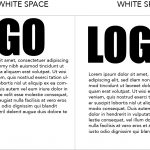
WordPress is an important framework we use when designing and developing websites for clients.
We believe in client empowerment:
One of the primary reasons why we use WordPress is the relative ease of use for the less tech-savvy. We believe that clients should be empowered to manage their site on their own, and/or to delegate the management of their website to someone on their team – without the need for an exhaustive tech background or an expensive monthly maintenance service contract. When developing a WordPress theme or plugin, we take extra time and care to make management and configuration as easy as possible.
WordPress is vastly popular, and powers (at the time of this writing) 27.2% of all websites on the internet. That’s impressive! That also means that there is a multitude of information out there if a client wishes to learn more in-depth about WordPress. Clients will also have access to a vast pool of qualified WordPress professionals that can take over if the client wishes. More competition means competitive pricing.
We don’t believe that the key to client retention is to lock clients into a situation where they are forced to work with us due to a lack of choice. Clients should have the freedom to stay or go as they please.
We believe that less is more:
We followed the trajectory of most firms in that in our early years we were customizing premium WordPress themes to suit the needs of the project. The benefit of this approach is that you can speed up design and development time, and reduce cost for most projects. As with anything, there was a trade-off. We often ran into issues and limitations when customizing premium themes due to the variance and lack of proper coding practices.
Another major flaw with most premium themes is that they try going for mass appeal by including a gluttony of features and plugins that most people will never utilize. This adds unnecessary bloat to the code, files, and plugins that are always loaded no matter what – increasing page load time.
As we grew as a company, we have been able to progress into custom designed and built WordPress themes that fit the specific needs of the project. This approach greatly reduces page load time.
We also take the approach of limiting the amount of plugins we load into a WordPress website, and we are very selective of the plugins we use. Just as in themes, there are a gluttony of poorly coded plugins that can open your site to malicious code and vulnerabilities. We stick with the most reputable and trusted plugins whenever it’s not advantageous to reinvent the functionality wheel. Most other times, we incorporate exactly the functionality we need in the theme, and/or a single plugin we developed to enhance the functionality of the theme.
We believe in fully leveraging the WordPress framework:
We often come across poorly coded themes and plugins that:
Duplicate functionality already found within the WordPress core framework.
Needlessly creates custom database tables instead of utilizing existing suitable methods of data storage like custom post types, options, transients, custom post meta, custom user meta, etc.
Includes a custom settings/options framework when the built-in customizer would work just fine.
Don’t utilize custom meta boxes, and instead use their own post type menus and sections needlessly.
Introduces code that conflicts with WordPress.
The list goes on and on, and such practices reflect a lack of knowledge and awareness of the WordPress framework. Our goal in any project is to utilize the WordPress framework in every way possible. This approach speeds up development time, and standardizes the functionality that clients/users are used to and expect.
We believe in growing with WordPress:
As WordPress evolves, we evolve. We’ve been with WordPress since version 2.1 released January, 2007 – 10 years ago! Back when we first started on our journey with WordPress, it was a relatively new concept to use WordPress exclusively as a CMS (Content Management System) for managing the rest of your website.
A lot has changed with WordPress over the years, and will continue to change, and we’re excited to be part of this journey.



